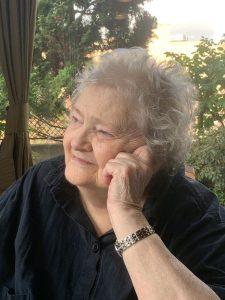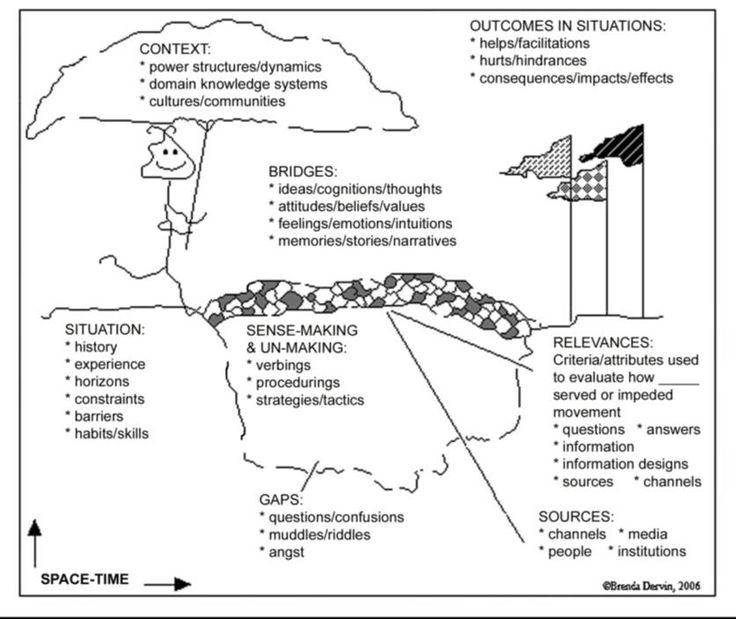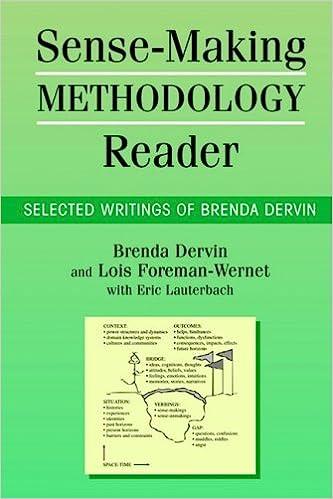Lucidea’s Lens: Knowledge Management Thought Leaders Part 39 – Brenda Dervin

Stan Garfield

Brenda Dervin, a stalwart of the information science and communication fields, died in Seattle on December 31, 2022 at the age of 85. She has been described as “a mentor,” “a rockstar,” “force of nature,” “an inspiration,” and “indomitable.”
At The Ohio State University, she was Professor Emeritus of Communication a Chair of the former Department of Communication. Dervin received her Bachelor of Science degree in journalism and home economics and a minor in philosophy of religion from Cornell University in 1960. She followed with a Master of Arts and Ph.D. in communication research from Michigan State University in 1971. Her first academic position was in the School of Library and Information Sciences at Syracuse University, which began her lifelong interest in library and information sciences before she moved on to the School of Communication at the University of Washington in 1977. Her conversations with Richard Carter helped her to develop what has come to be known as Sense-Making Theory and Methodology. In 1986, Dervin arrived at The Ohio State University where she chaired what was then the Department of Communication before returning to research and teaching.
Dervin’s scholarship focused on the role of sense-making in dialogue and information behavior. She was an international leader in developing Sense-Making Theory and Methodology. The methodology has been widely used, as Dervin noted “in studies of the needs, interests, and uses of media/information/communication systems and messages by their users, audiences, clients, and citizens.”
The methodology has been particularly used by researchers in library and information sciences. Dervin’s intellectual contribution to both communication and library and information science disciplines was substantial. She published 124 journal articles and book chapters, co-edited or authored 23 books, and served as an editor of Progress in Communication Sciences for the first 14 years of its publication.
She was awarded an honorary doctorate in political science by the University of Helsinki. Dervin was a Fellow of the International Communication Association and served as its first female president from 1985 to 1987. A frequently cited author, she has more than 17,000 citations on Google scholar. In 2006, she received the Research in Information Science award from ASIS&T, which recognizes an individual who has made an outstanding contribution to information science research.
Profiles
Quote
“While once knowledge was valued for providing answers, homogeneity, and centrality, now we need to think of potentials for empowering and releasing creativity and diversity. While once we thought we could bask in the certainty of answers and solutions, we now need to learn to appreciate the courage and creativity it takes to step into the unknown only partially instructed by information/knowledge. In this view, every next moment is unknown; and the step into it can never be more than partially informed.”
Videos
Infographic: Sense-Making

Books
Sense-Making Methodology Reader: Selected Writings of Brenda Dervin

Ubiquitous Developments in Knowledge Management: Integrations and Trends edited by Murray Jennex – Chapter 13: Applying Sense-Making Methodology to Design Knowledge Management Practices (with Bonnie Cheuk)
User-Driven Healthcare and Narrative Medicine: Utilizing Collaborative Social Networks and Technologies edited by Rakesh Biswas and Carmel Mary Martin – Chapter 20: Online Learning in Discussion Groups: A Sense-Making Approach (with David J. Schaefer)
Information Seeking Behavior and Technology Adoption: Theories and Trends edited by Mohammed Nasser Al-Suqri and Ali Saif Al-Aufi – Chapter 4: Dervin’s Sense-Making Theory
Encyclopedia of Library and Information Sciences edited by John D. McDonald and Michael Levine-Clark – Chapter: Communication and Communication Studies (with CarrieLynn D. Reinhard); Chapter: Sense-Making (with Charles M. Naumer)
Other Content
- CV
- KM Publications
- Sense-Making – Oxford Bibliographies
- Sense-Making Methodology Institute – Dervin’s Sense-Making Methodology
- Sense-Making Studies (archive)
Articles
Articles by Others
- In Memoriam: Brenda Dervin – Association for Information Science and Technology (ASIS&T)
- In Memoriam: Brenda Dervin – The Ohio State University
- A tribute to Brenda Dervin by Dave Snowden
- The world loses a treasure: My interactions with Brenda Dervin – Information Matters by Naresh Agarwal
- Making sense of sense-making: tracing the history and development of Dervin’s Sense-Making Methodology by Naresh Agarwal
- An interview with Professor Emeritus Brenda Dervin by Matthew Kelly
- Dervin’s Sense-Making Methodology (SMM) by Jinxuan Ma
10 Myths about Information and Information Seeking by Saritza Legault
- Only ‘objective’ information is valuable. “For most tasks and decisions in life, people tend to settle for the first satisfactory solution to a problem, rather than the best solution.”
- More information is always better. “Typically, there is not a problem getting enough information but rather with interpreting and understanding what information there is.”
- Objective information can be transmitted out of context. “But people tend to ignore isolated facts when they cannot form a complete picture of them.”
- Information can only be acquired through formal sources. “This assumption, often made by those in educational institutions, flies in the face of actual behavior.”
- There is relevant information for every need. “The truth is that mere information cannot satisfy many human needs.”
- Every need situation has a solution. “But sometimes the client is looking for something – a reassurance, and understanding – that does not come in the shape of a canned response.”
- It is always possible to make information available or accessible. “Formal information systems are limited in what they can accomplish, at least where the vague, ambiguous, and constantly changing needs of the public are concerned.”
- Functional units of information, such as books or TV programs, always fit the needs of the individual. “But the ‘functional units’ of the individual are not often these things; rather, they are responses, solutions, instructions, ideas, friendships, and so forth.”
- Time and space – individual situations – can be ignored in addressing information seeking and use. “Yet it is often the individual’s definition of the situation that shapes his or her needs as much as the ‘real’ situation itself.”
- People make easy, conflict-free connections between external information and their internal reality. “We lack understanding about how people inform themselves, how they make connections over time, the sense they make of their world between significant events.”

Stan Garfield
Please enjoy Stan’s blog posts offering advice, analysis, and insights drawn from many years as a KM practitioner. You may want to download a free copy of his book, Lucidea’s Lens; Special Librarians & Information Specialists: The Five Cs of KM from Lucidea Press, and its precursor, Proven Practices for Implementing a Knowledge Management Program. Learn about Lucidea’s Presto, SydneyEnterprise, and GeniePlus software with unrivaled KM capabilities that enable successful knowledge curation and sharing.
Never miss another post. Subscribe today!
Similar Posts
Lucidea’s Lens: Knowledge Management Thought Leaders Part 79 – David Garvin
KM expert David Garvin was a proponent of organizational learning to counter unpredictability in market forces and technology advances.
Lucidea’s Lens: Knowledge Management Thought Leaders Part 78 – Carl Frappaolo
KM expert Carl Frappaolo was the creator of Delphi’s Knowledge Management Methodology (KM2)
Lucidea’s Lens: Knowledge Management Thought Leaders Part 77 – Leif Edvinsson
Leif Edvinsson, Professor Emeritus at Lund University in Sweden, specializes in Intellectual Capital Management of Enterprises, Cities, and Nations
Lucidea’s Lens: Knowledge Management Thought Leaders Part 76 – Seth Earley
Seth Earley works in cognitive computing, knowledge engineering, data management systems, taxonomy, ontology, and metadata governance strategies.

Leave a Comment
Comments are reviewed and must adhere to our comments policy.
0 Comments